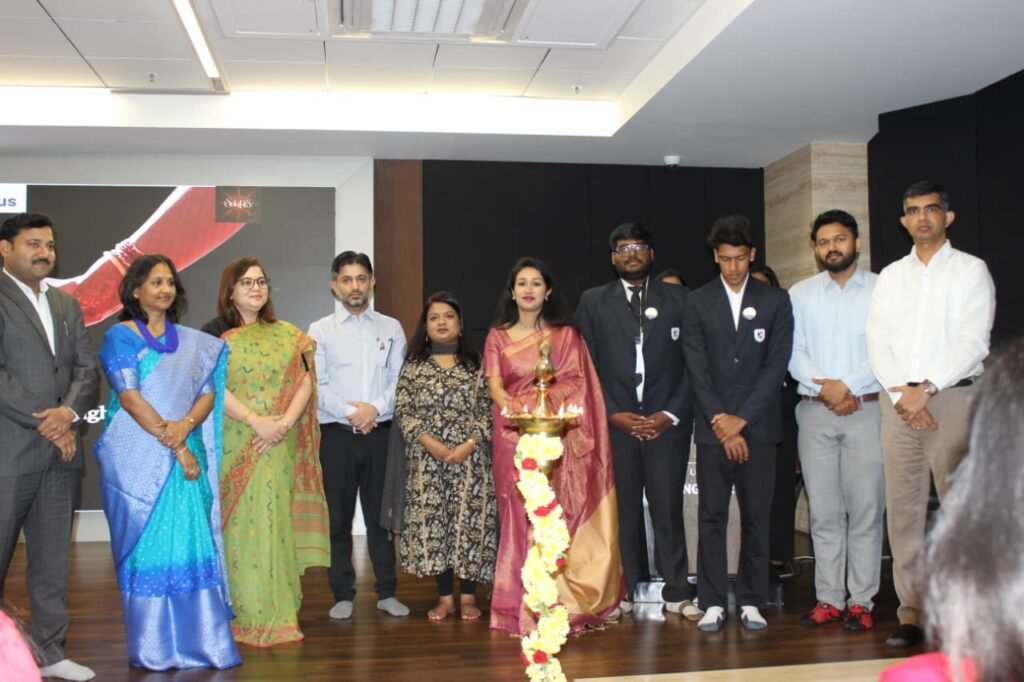- The collaboration follows US President Joe Biden’s visit to the G20 Summit in New Delhi and the Association of American Universities’ push for such international partnerships.
The Indian Institute of Technology Kanpur (IITK) has announced a collaboration with NYU Tandon School of Engineering to advance seven research projects. This partnership, which was initially formed in September 2023, marks a significant step forward in the fields of cybersecurity, biotechnology, artificial intelligence, robotics, and wireless communications. The collaboration follows US President Joe Biden’s visit to the G20 Summit in New Delhi and the Association of American Universities’ push for such international partnerships.
In a joint statement, President Biden and Indian Prime Minister Narendra Modi underscored their support for this academic cooperation, highlighting its importance for both nations.
Professor Bushra Ateeq, Dean of International Relations at IIT Kanpur, said, “International academic partnership enhances the diversity of ideas, fosters synergies, and drives collective efforts to tackle scientific challenges. Our partnership with NYU is set to foster innovation and develop solutions with global impact.”
Linda Ng Boyle, Vice Dean for Research at NYU Tandon, added, “Building academic ties across borders is essential for driving scientific breakthroughs. Our collaboration with IIT Kanpur aims to deliver technological innovations that make our world safer, cleaner, and healthier.”
The new partnership follows NYU Tandon’s 2022 agreement with KAIST (Korea Advanced Institute of Science and Technology), illustrating NYU’s commitment to global innovation.
Funding for these research projects comes from both institutions, with additional support from NYU Tandon’s Center for Advanced Technology in Telecommunications and the NYU Center for Cybersecurity.
The seven joint research projects are:
Engineering Multivalent Assembled Protein To Mimic Hypoxia-Inducible Factor – The team is developing synthetic proteins that can dismantle harmful protein complexes associated with diseases like cancer. Using computer models, the scientists design optimal shapes for these multi-armed structures, which are then created and tested in the lab. The prime focus is on targeting protein complexes that promote tumor growth, to advance cancer treatment.
Enhancing Quadruped Robot Motion: A Reinforcement Learning Approach – This project focuses on improving the agility, stability, and safety of four-legged robots using advanced machine-learning techniques. By training robots through simulations and ensuring their movements are safe and predictable, the team hopes to enhance their ability to navigate rough and unpredictable terrain.
High-Resolution Neural Interface SoC with Meta-Structure-Enhanced Wireless Power Transmission – The project aims to develop a tiny, wireless system-on-chip for high-resolution brain monitoring. This device integrates innovative electromagnetic metastructures to improve wireless power delivery to a small implant. By co-designing the power, recording, and communication systems, researchers aim to dramatically increase the capabilities of neural interfaces, potentially advancing neuroscience and applications like brain-computer interfaces.
Leveraging Modern Vision-Language Models For Traffic Camera Scene Understanding – This project uses advanced vision-language models to enhance understanding of traffic scenes captured by urban video cameras it aims to reduce the costs and complexity of training computer vision models from scratch. The collaboration involves experts in transportation and AI, aiming to develop flexible and cost-effective systems for tasks like vehicle detection and traffic incident identification, particularly in Indian traffic conditions.
Smart Wireless EV Charging Station – The researchers are creating an intelligent, safe, and efficient wireless charging system for electric vehicles (EVs) that integrates renewable energy sources like solar power. This system will feature advanced foreign object detection, electromagnetic shielding, and the ability to manage coil misalignment. The project aims to develop a prototype and validate the system’s performance, with the potential for commercialisation and enhancing renewable energy utilisation in EV charging.
Unconventional Physically Unclonable Functions For Micro-fluidics And Supply Chain Fingerprinting – This research project aims to develop unique security features called physically unclonable functions (PUFs) for authenticating microfluidic biochips and supply chain products. The objective is to improve security and authentication in medical diagnostics and supply chain management through robust, machine learning-enhanced PUF designs.
Programmable Cryptographic Processing Units – This project focuses on developing advanced cryptographic techniques to ensure secure and private computation, even in the face of future quantum computing threats. The researchers will design efficient post-quantum cryptography and homomorphic encryption schemes optimized for various hardware platforms. The project aims to make privacy-preserving technologies practical and efficient, with applications in secure authentication and machine learning, while fostering further research through open-source initiatives.



